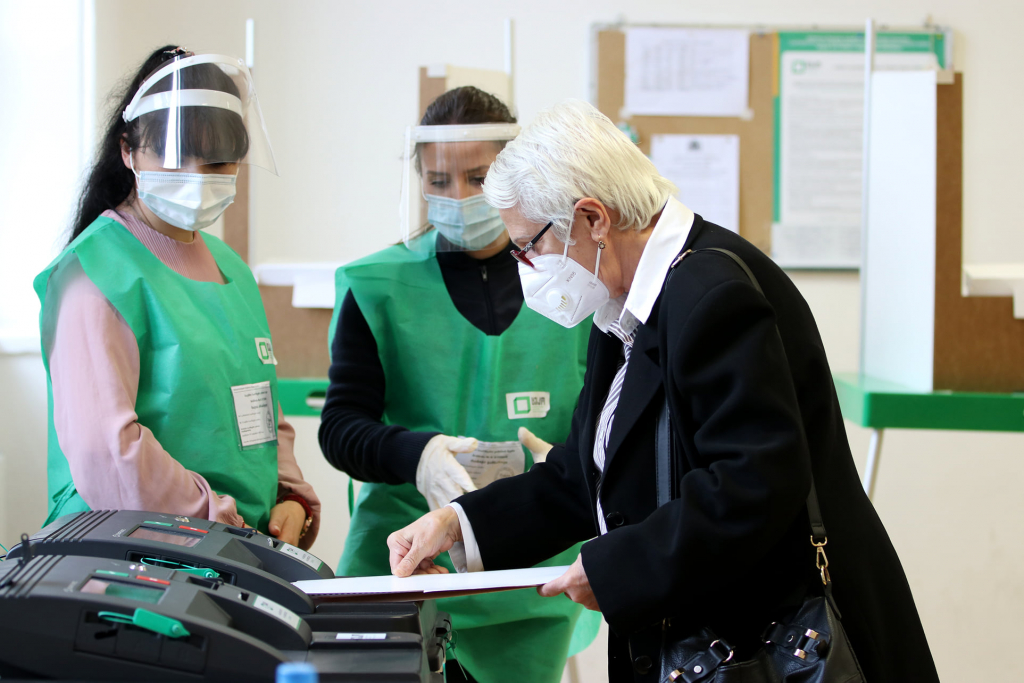
TBILISI, DFWatch–Georgia’s local elections have so far earned mixed results, with both the ruling party and the opposition celebrating victory and highlighting their own success.
Although the ruling Georgian Dream (GD) won a landslide victory in the proportional list and received 47% of the overall votes, it experienced major setbacks in several provincial cities.
Despite GD’s assertion beforehand that it would secure victory in the first round everywhere, a second round was announced in Batumi, Kutaisi, Zugdidi, Rustavi and Telavi, as well as in 15 other cities, giving the opposition grounds for optimism.
The result in Tbilisi was especially painful for GD, where the incumbent mayor, Kakha Kaladze achieved 45%, which is not enough for an outright win but makes it necessary to hold a second round.
Nevertheless, given the specifics of Georgia’s elections and past practice, he has a good chance of winning the runoff, as do the ruling party’s candidates in many other cities. However, in some places, especially in large regional centers, including Zugdidi, Batumi, Rustavi and Kutaisi, the second round will most likely be highly competitive.
The picture is similar with regard to city councils, where GD will find it difficult to form a majority in many places and will likely have to form a coalition. This means the party of former Prime Minister Giorgi Gakharia, “For Georgia”, will play an important role in some municipalities despite securing only 8% of the overall vote on a national level. Gakharia has pitted his party against both GD and the main opposition party United National Movement (UNM).
The latter received 31% of the total votes. Its candidates came in second place practically everywhere, and several places UNM even came first, such as Zugdidi, where candidate for mayor Anzor Melia, a well-known cardiologist and the father of UNM leader Nika Melia, achieved 47%; seven percentage points ahead of the GD candidate.
These results are inconvenient for the GD, which had won more convincingly in all previous elections. However, the 47% taken by GD exceeds the informal benchmark that was considered by many to be a precondition for a change of government in the country.
A compromise agreement mediated by European Council President Charles Michel which ended the political crisis in the wake of the 2020 general election included a clause that would have triggered a snap election for parliament next year, should GD achieve less than 43% in Saturday’s poll.
However, GD unilaterally withdrew from the agreement a few weeks after signing it. GD leaders have consistently stated that there will not be early elections under any circumstances. Nevertheless, the opposition was adamant that if GD failed to win 43% of the vote, it would put pressure on the government to call a snap election.
International observers also issued a dubious assessment following the election, praising its technical aspects, while also noting “allegations of electoral irregularities, vote-buying, and an unlevel playing field, as well as intimidation and pressure”.
“These elections saw a large range of candidates campaigning freely and many diverse views. They were also run transparently and professionally,” said Albert Jónsson, who heads the ODIHR election observation mission. “However, an increasingly aggressive political discourse, and even cases of physical violence was of deep concern. Widespread and consistent claims of violations need to be thoroughly investigated by the authorities.”

